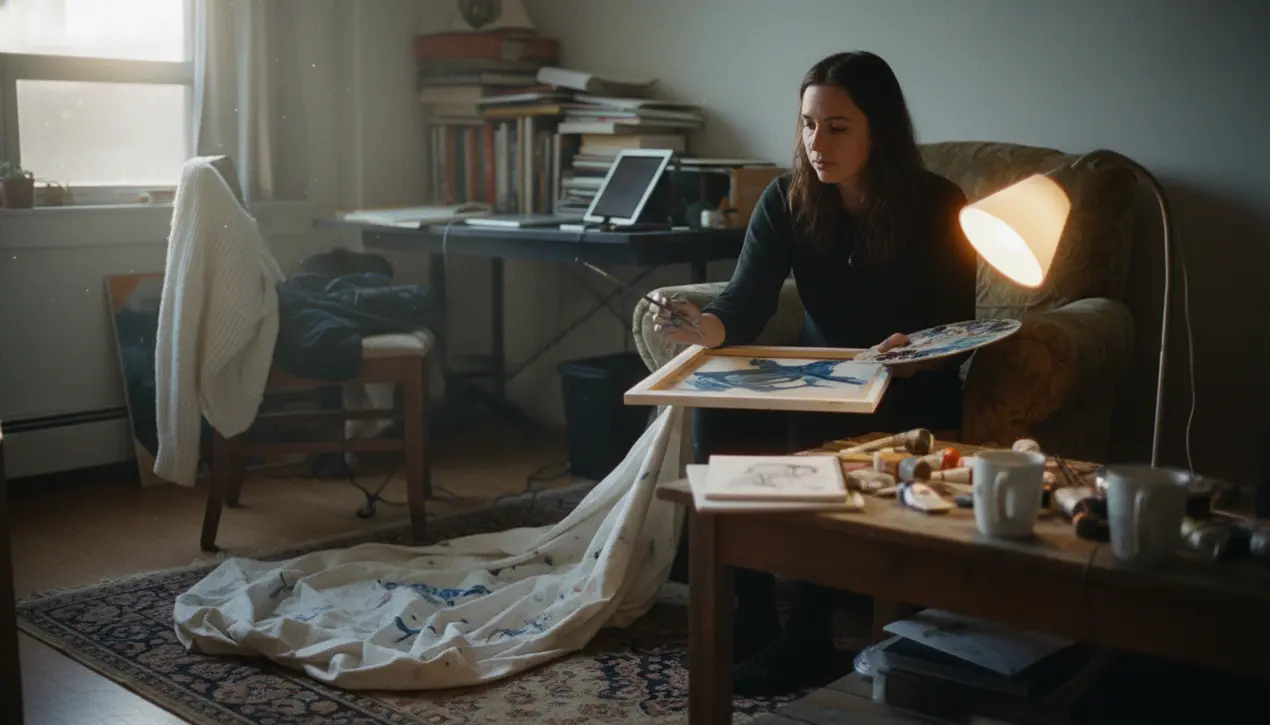
Entertainmenttheatre & artsArt Exhibitions
The Studio Debate: Is a Dedicated Space Essential for Artistic Legitimacy?
NA
Natalie Cooper
2 hours ago7 min read
The question of whether an artist requires a dedicated studio is a perennial dilemma, pitting romantic ideals against modern economic realities. For countless creators, the kitchen table or a living room corner serves as the incubator for their early work—a functional, if improvised, creative hub.Yet, a pervasive cultural narrative suggests that true professional credibility is only achieved upon securing a rented, purpose-built space, a notion as entrenched as the belief that a musician hasn't 'made it' until they've played a legendary venue. This internal pressure, the fear that a domestic setup might hinder a career's trajectory, is a common anxiety that deserves a pragmatic reassessment.The glorified image of the artist's studio, from the explosive chaos of a Jackson Pollock to the serene light of a Georgia O'Keeffe, has been so powerfully cemented by art history that it can feel like a mandatory step. Industry players like gallerists and collectors often unconsciously equate a formal studio with serious commitment, creating an invisible barrier that can feel as daunting as a critical review.Practical considerations also demand attention; large-scale sculptures, works requiring toxic solvents, or messy processes simply cannot be safely or reasonably managed in a shared domestic environment. The encroachment of materials on living space becomes a constant negotiation.However, the skyrocketing cost of urban real estate in centers like New York or London has transformed the private studio from a dream into a financial burden for many. The ongoing expense of rent and utilities can become the antagonist in an artist's story, siphoning funds away from materials, opportunities, and the simple luxury of time.This economic pressure has, in turn, fueled innovation, giving rise to collaborative studio complexes that foster community and shared resources, and a renewed appreciation for ingeniously converted garages, sheds, and spare rooms. Furthermore, the digital age has fundamentally altered the landscape; for digital artists, animators, and conceptual practitioners, the 'studio' is now a laptop, completely untethering the act of creation from a fixed location.Ultimately, the value of an artist's work is not measured by the square footage they inhabit but by the potency, originality, and integrity of the vision they realize. The career of an artist like Tracey Emin, whose most powerful works were born from the intimate context of her own bed, demonstrates that compelling art often emerges from authentic personal space, with or without a formal studio.The pressure to adhere to an archaic blueprint is a distraction from the core mission: the act of creation itself. Therefore, view your kitchen-table studio not as a sign of amateur status, but as your current, valid stage. The art you produce there is the only critique that truly endures.
#art studio
#creative space
#career advice
#artistic process
#featured
Stay Informed. Act Smarter.
Get weekly highlights, major headlines, and expert insights — then put your knowledge to work in our live prediction markets.
Comments
Loading comments...
© 2025 Outpoll Service LTD. All rights reserved.